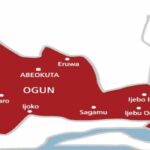
We all know that something urgent needs to be done about our abysmal educational sector. If we continue to do nothing, then the decay in Nigeria which is traceable to poor-quality government schools and a dysfunctional educational system will continue unabated. Educational authorities tend to focus their attention on rectifying the decline of Secondary and Tertiary institutions where examination malpractice, cult activities and immoral behaviour are increasingly common.
The bulk of Nigerian school leavers are academically handicapped because long before they ever proceeded to secondary school, they were set in their semi-literate ways by poor primary education. Nigerian universities are resigned to producing half-baked graduates because higher education isn’t a miraculous activity which restores deformed intellect! Indisputably Nigeria needs complete re-vamping of its education system to include better infrastructure, updated syllabus, modern teaching aids, more teachers, and better teachers.
This mantra has been repeated ad nauseam by every incoming government, but little or nothing has ever been done. In a commendable initiative to assess the quality of its primary school teachers, the Kaduna State Government arranged a proficiency and basic skills test. The results were staggering. Out of 33,000 teachers tested, the vast majority (approximately 66%) failed! The consequent decision to sack the failures and recruit 25,000 replacements, led to a predictable breakdown of law and order.
Kaduna State was virtually shut down as teachers walked off the job demanding a reversal of the decision. The President of the Nigeria Labour Congress (NLC) together with thousands of civil servants marched to the State House of Assembly to register their protest. Not mincing his words, the NLC President described the competency test as “unacceptable” and “lacking credibility” firstly because the legitimate institutions mandated to organise such assessments were side-lined, and secondly because some of those declared successful were either retired teachers, security guards or even dead! The bruhaha and the Nigeria Union of Teachers (NUT) two-week ultimatum to the governor to reverse the planned sack, highlights the problems involved in trying to reform a public employment system entrenched in the defence of mediocrity, and a belief that performance monitoring concepts don’t apply to their work.
In every instance where government teacher competency tests have been introduced in Nigeria, the outcome has been the shelving of reform in the face of agitation and outright rejection of such assessments by the NUT. The end result is that Nigeria has amongst the lowest rates of literacy in the world. The All Progressives Congress (APC) won the last presidential election because Nigerians bought in to the concept of a “Change Agenda”. Everyone agreed that the nation needed change, but the problem, which becomes more apparent every day, is that neither the changes that would take place, nor the manner in which they would be carried out, was clearly defined.
The most imperative change required in Nigeria is the reformation of bureaucracies and building of merit-based public organisations. This usually commences with the administration of competency and proficiency tests to ascertain the quality of the workforce and replace those who don’t meet standards. Invariably in Nigeria such well-intentioned reforms are always aborted in the face of popular protest and union activities. The NLC and NUT cannot be blamed for acting to ameliorate the adverse effects of the policy upon the livelihood of large numbers of their members. Even though the State Government is absolutely correct in asserting that unqualified primary school teachers have no right to inflict ignorance upon pupils and deform them educationally for life, their decision to inflict uncertainty and increased suffering upon thousands at this time deserves reproach.
Political leadership involves considering the socio-economic consequences of decisions. Mass retrenchment at this moment in time will neither help the State, nor improve the educational system. A fresh approach and revision of strategy is required if educational reform is to succeed. Most reforms in Nigeria fail because Governors are wrongly convinced that their merits are self-evident and don’t require popular support. Their erroneous imperious mindset must be dispensed with immediately. State Governors aren’t elected as Emperors not to be questioned. They must engage themselves in coalition-building and forging consensus. Change and reforms must include palliatives to cushion collateral damage. It’s been suggested that the ongoing mess could easily have been averted by adopting a slower, more systematic piecemeal approach.
Easing unqualified or incompetent teachers out over a period of time would have avoided the confrontation with large trade unions caused by state-wide mass sacking. Others believe that an even better approach would have been to enlist teachers in a drive to re-train themselves and help create better schools. So many previous well-intentioned attempts at reforming bureaucracy in Nigeria have failed simply because their top-down approach doesn’t allow for input from those to be affected. To reverse this trend Governors must adopt a more democratic bottom-up approach centring change on those burdened with implementing and policing the reforms.
The Kaduna State Government would be well advised to stay their hand and engage teachers and the general public in a thorough examination of the issues involved, and the change process itself. Any belief that large numbers of qualified teachers are waiting to be employed in Kaduna State is fallacious. Teaching in government primary schools in Nigeria isn’t a profession which endears itself to anyone. Low prestige of teachers, irregular or delayed salaries, lack of career advancement opportunities, and the dilapidated working environment, has over the years led to mass movement away from the government primary school teaching profession. As for State Governor el-Rufai he would do well to temper his passion for ill-considered reforms by reflecting upon the “success” of his school feeding and other programs. He has yet to convince anyone that his primary school reforms will not be just another example of a fad for implementing well-intentioned solutions using wrong methodology.




